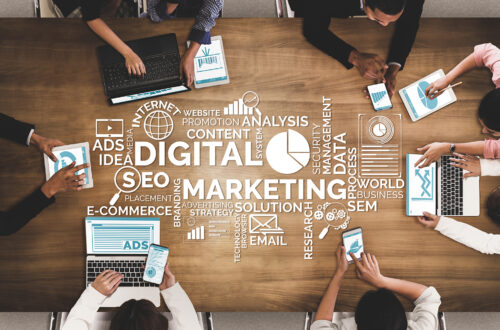
How Can Artificial Intelligence Help Us Get to Net Zero?
A potent instrument for tackling the global challenge of reaching net-zero emissions is artificial intelligence (AI). Artificial Intelligence (AI) is transforming many industries and opening the door for creative approaches to addressing climate change because of its capacity to process enormous volumes of data and perform intricate computations. Read on to find out how can artificial intelligence help us get to net zero.
Let’s investigate the critical role artificial intelligence (AI) can play in advancing us toward a sustainable future.
Improving Energy Economy
Artificial intelligence (AI) algorithms can optimize energy use through pattern analysis, inefficiency identification, and improvement suggestions. Artificial intelligence-driven smart grids can control and monitor energy distribution, reducing waste and raising overall effectiveness. Furthermore, AI-powered sensors and control systems can improve energy use in industrial processes, buildings, and transportation, greatly lowering carbon footprints.
Bringing Renewable Energy to the Next Level
AI can optimize the output of renewable energy sources, such as wind and solar power. AI algorithms can analyze weather patterns, demand forecasts, and grid conditions to maximize the use of renewable energy installations efficiently. By guaranteeing effective power generation, storage, and distribution, this lessens dependency on fossil fuels and speeds up the switch to sustainable energy.
Making Smart Transportation Possible
You must be wondering how can artificial intelligence help us get to net zero. This is the response you provided. AI has the potential to completely transform transportation by facilitating driverless cars and streamlining traffic control. Artificial intelligence (AI)-driven self-driving cars can cut emissions and fuel consumption by avoiding traffic jams and implementing smart driving techniques. AI can also improve public transportation systems by streamlining schedules, routes, and vehicle usage, which lowers pollutants and energy use.
Accurate Farming
AI-powered tools like machine learning and remote sensing have the potential to completely transform agricultural methods. Artificial intelligence (AI) algorithms can optimize irrigation, fertilization, and pest management using less water, chemicals, and energy by assessing soil conditions, weather patterns, and crop health data. Techniques for precision agriculture can increase agricultural yields while minimizing environmental impacts.
Modeling and Prediction of Climate
Large-scale climate data analysis is possible with AI, allowing for precise climate modeling and forecasting. This facilitates decision-making by scientists and policymakers by enabling them to comprehend the effects of various initiatives. Artificial intelligence (AI)–enabled climate models can assess mitigation techniques, simulate various scenarios, and assist policymakers in developing sensible climate policies.
Capturing and Storing Carbon
Carbon capture and storage (CCS) technology development and optimization can benefit from artificial intelligence (AI). Artificial intelligence (AI) algorithms can improve the efficiency and economic viability of capturing and storing carbon dioxide emissions from industrial processes and power plants by evaluating data from CCS facilities and geological formations.
Decision Support and Behavioral Modification
AI has the power to change people’s behavior to more sustainable norms. AI-powered platforms can offer tailored advice and financial incentives to encourage the adoption of environmentally friendly behaviors, such as waste minimization, energy conservation, and sustainable consumption. Businesses, governments, and individuals can all benefit from AI’s decision-support tools, which assist them in making sustainable decisions and coordinating their activities with climate goals.
Evaluation of Climate Risk and Adaptation
Climate risk assessment and mitigation can be aided by AI. Artificial intelligence (AI) algorithms are capable of identifying susceptible locations, predicting climate-related risks, and supporting adoption plans by processing data from several sources, such as sensors and satellite photography. AI can improve resilience to the effects of climate change, provide early warning systems, and streamline catastrophe response.
How is the move toward net-zero energy being facilitated by AI?
AI is essential to accelerating the shift to net-zero energy. It facilitates intelligent energy management, improves grid efficiency, and maximizes the production of renewable energy. Large-scale data analysis is done by AI algorithms to enhance demand responsiveness, grid stability, and energy forecasting. Smart meters and energy storage are two more AI-powered technologies that support economical energy use. We can move faster toward clean, sustainable energy sources with AI’s help, opening the door to a more environmentally friendly future.
Net Zero and Artificial Intelligence in the Aviation Sector
To achieve net-zero emissions, the aviation sector is transforming thanks to artificial intelligence (AI). Algorithms driven by AI optimize the routes of both domestic and international flights, saving emissions and fuel. Real-time data analysis is done by smart systems to cut waste and increase operational efficiency. AI helps with aviation maintenance as well, anticipating and averting problems to improve safety and save downtime. Artificial intelligence also helps develop electric airplanes and sustainable aviation fuels, which lessens dependency on fossil fuels. By integrating AI, the aviation sector is moving closer to the audacious target of net-zero emissions and toward a more environmentally friendly future.
We can tackle climate change and reach net-zero emissions with the help of artificial intelligence. Artificial intelligence (AI) has the power to bring about revolutionary change in the direction of a sustainable and resilient future. It can do this through revolutionizing renewable energy, optimizing energy systems, enabling smart transportation and agriculture, supporting carbon capture, facilitating climate modeling, encouraging behavioral change, and improving climate risk assessment. To fully utilize AI for a more environmentally friendly society, stakeholders must collaborate and embrace AI technologies.
Selecting airlines that are actively striving to achieve net zero carbon emissions is one way you may contribute. You can travel abroad with Indian Eagle without having to worry about running out of money. We provide flights from carriers like Air India and Emirates, who are aiming to be net zero by 2050. Thus, if you intend to go soon, reserve your flights with Indian Eagle right now!
You now understand how can artificial intelligence help us get to net zero. Please share your thoughts regarding artificial intelligence (AI) transforming all industries worldwide in the comments section below.




